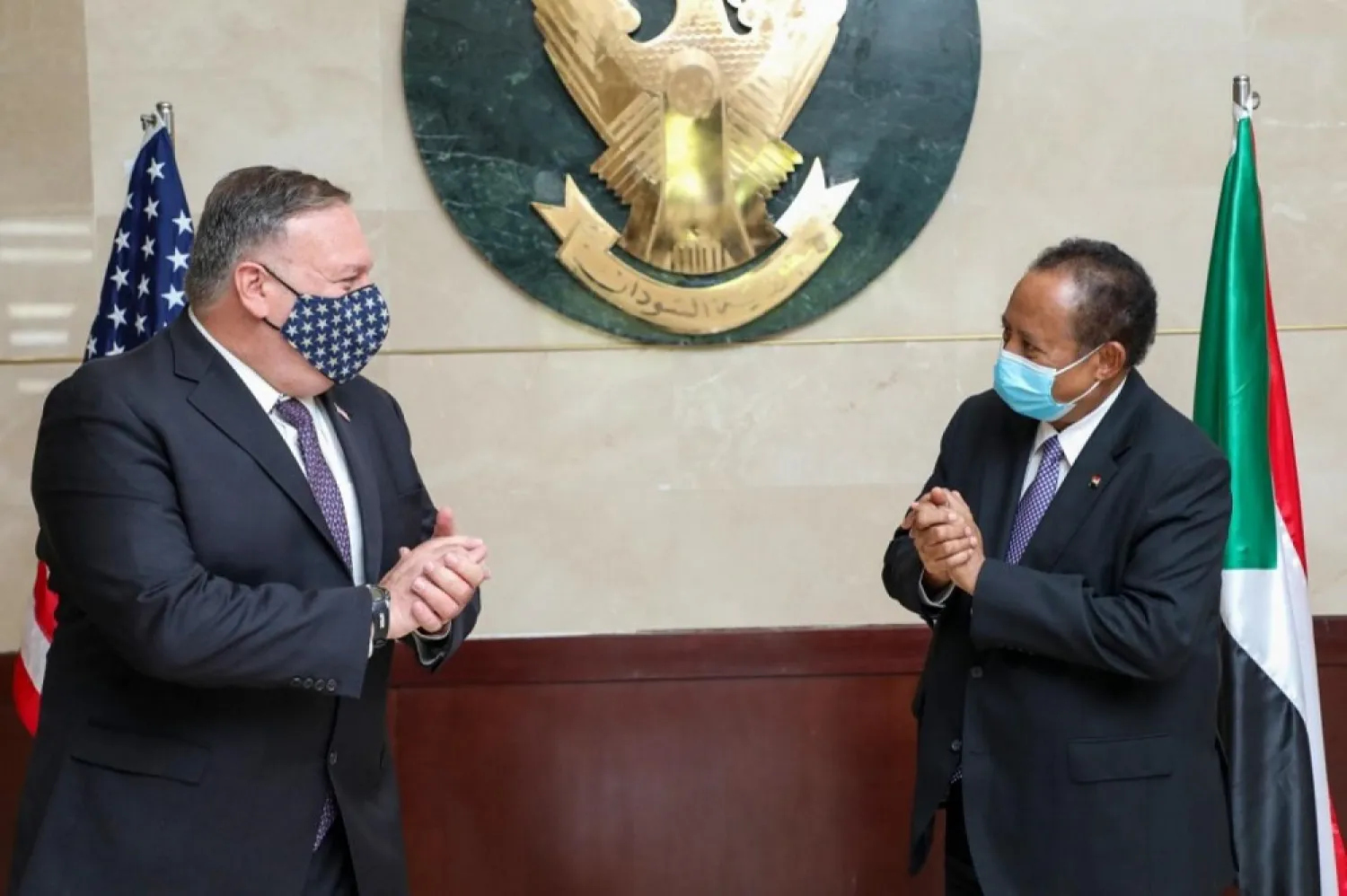The US administration is seeking to remove obstacles and sanctions hindering the lifting of Sudan from a US list of state sponsors of terrorism, despite the objection of some congressmen.
In return, Khartoum is taking practical steps with Israel and the United Arab Emirates to establish diplomatic relations with Tel Aviv and reach a financial settlement with victims of terrorism.
US diplomatic source said that Washington discussed sensitive details with the government of Abdalla Hamdok to remove Sudan from the list.
Those details include compensation to families of victims in 1998 blasts against the US embassies in Nairobi and Dar es-Salaam and also of victims of the USS Cole in a 2000 attack in Aden.
“In September 2019, the Sudanese government along with regional partners, continued efforts to fight terrorism, including operations threatening US interests and individuals in Sudan,” sources told Asharq Al-Awsat.
Sudanese forces also conducted patrols along the Sudanese-Libyan and Sudanese-Chadian borders to prevent the smuggling of suspected terrorists and of weapons, they added.
“US circles take those efforts into consideration and such measures pushed US Secretary of State Mike Pompeo to demand the removal of Sudan from the terrorism list,” the sources revealed.
Axios website quoted Sudanese sources as saying that US, Emirati and Sudanese officials flew to Abu Dhabi last Monday to discuss a peace deal between Israel and Sudan.
Khartoum is pushing to get off the US list, which hinders its ability to access foreign loans to tackle an economic crisis.
The website wrote that Sudan was represented by members of the civilian and military branches of the government — mainly the chief of staff to Hamdok and Minister of Justice Nasredeen Abdulbari, who is also a US citizen.
“According to Sudanese sources, the government of Sudan is asking for the following economic aid in return for a normalization deal with Israel: More than $3 billion in humanitarian assistance and direct budgetary aid in order to deal with an economic crisis and fallout from devastating floods and a commitment by the US and the UAE to providing Sudan with economic aid over the next three years,” Axios wrote.
It said that in addition to economic aid, the Sudanese government wants the Trump administration to remove Sudan from the State Department's state sponsors of terrorism list, adding that this issue is indirectly connected to the normalization deal with Israel.









